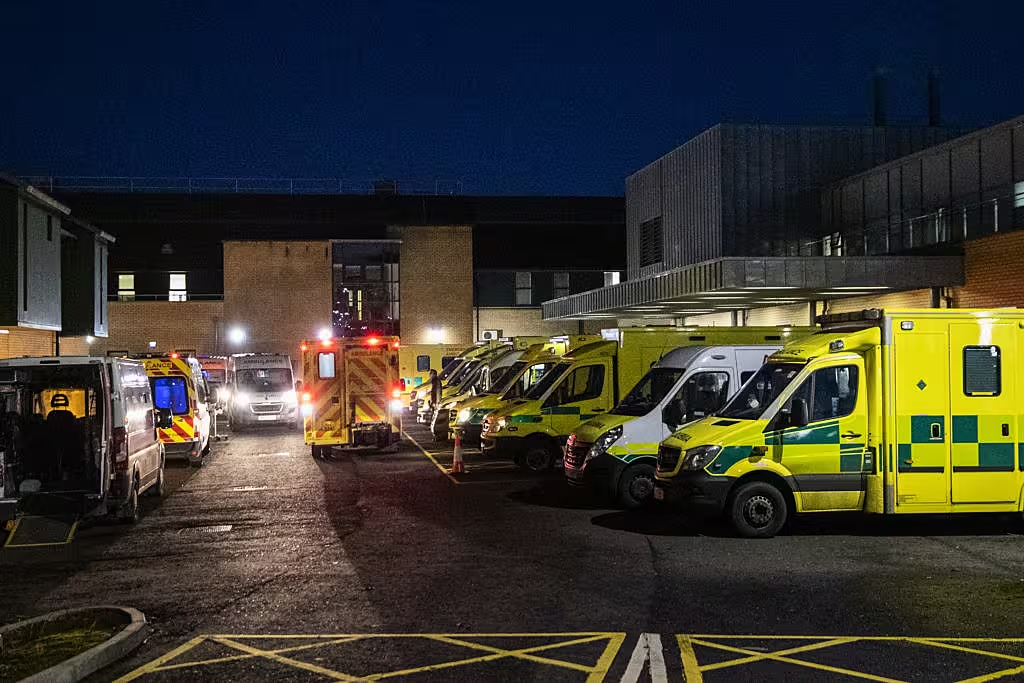By David Young, PA
The North's Health Minister has unveiled a £700 million (€810 million) plan to tackle the region’s spiralling waiting lists.
Robin Swann’s five-year strategy to address what are the worst waiting lists in the UK is based on a twin-track approach of investment and reform.
Mr Swann said he wanted long waits to be “fully banished” by March 2026.
The Covid-19 pandemic has exacerbated systemic problems within the North’s health service.
There are currently more than 335,000 waiting on a first consultant-led appointment in Northern Ireland, with some facing waits of up to seven years for treatment.
The waiting lists have led to increased pressures on emergency departments across the region, as patients attempt to seek treatment via A&Es.
Mr Swann unveiled his proposed road map out of the crisis at the Assembly on Tuesday morning.
He said current waiting times were “appalling”.
“Our waiting times are the worst of any UK region,” he said.
“It is simply not acceptable to me that the people of Northern Ireland should receive a lower standard of care than in other parts of the UK. The numbers waiting are shocking, but it is the experience of those patients waiting for care that is truly heart-breaking.
“Behind the statistics, there are real life stories of people waiting far too long in pain and discomfort. There are people on waiting lists who are living in continuous pain.”

The Covid-19 pandemic has exacerbated systemic problems within the North’s health service. Photo: PA
Mr Swann said he wanted to “restore hope” to people waiting for hospital care and promised targeted investment to get people treated more quickly.
He also set out plans to reform the healthcare system to ensure backlogs do not keep reoccurring.
“I realise this is a big ask at a time when there are many financial demands on our public sector,” he said.
“However, we should have no illusions that this is a crisis that has already dragged on far too long. The time for talk is over. What we need now is concerted action.”
Mr Swann said the waiting lists had been building up for seven years. He insisted there were “no quick fixes”.
The new elective care framework contains a range of short term, medium term and longer term actions.
The plan includes:
- implementation of “green pathways” to endeavour to keep elected care services entirely separate from any Covid-19 exposure;
- moving to seven-day week operating system for surgical theatres in Northern Ireland;
- expansion of the elective care centre model with surgeries provided in ring-fenced specialist hubs;
- a Northern Ireland-wide approach to treatment, rather than at local trust level – thus avoiding postcode lottery system;
- establishment of “mega-clinics” for outpatient, assessment and pre-operative assessments;
- initiatives to improved data, reporting and accountability;
- performance management initiatives;
- improved booking systems to minimise impact of missed appointments;
- close cooperation with the independent sector to deliver some treatments;
- development of in-house healthcare capacity, with extra investment in staffing and use of temporary, enhanced pay rates for targeted shifts;
- Adoption of new ”more transparent” measurement system to record waiting times, focusing on timeframe from referral to treatment. This will mirror the measurement system used elsewhere in the UK.
Mr Swann also announced plans for a new cross-Border healthcare directive for a 12-month period from July 2021.
This would allow patients to seek private sector treatment in the Republic and have their costs reimbursed, up to the value of what the treatment would cost if delivered by the health service in the North.
By March 2026, the minister said he wanted no patient to be waiting more than 52 weeks for a first outpatient appointment and inpatient/day case treatment and no more than 26 weeks for a diagnostics appointment.
“If we can bring forward this timeline we will obviously do so, but we have to acknowledge the scale of the problem that has built up and the capacity restrictions that will limit our room for manoeuvre,” Mr Swann added.
He said there were currently almost 190,000 patients waiting more than a year for their first outpatient appointment, five times the number when a previous ill-fated plan to tackle the elective care crisis was published in 2017.












